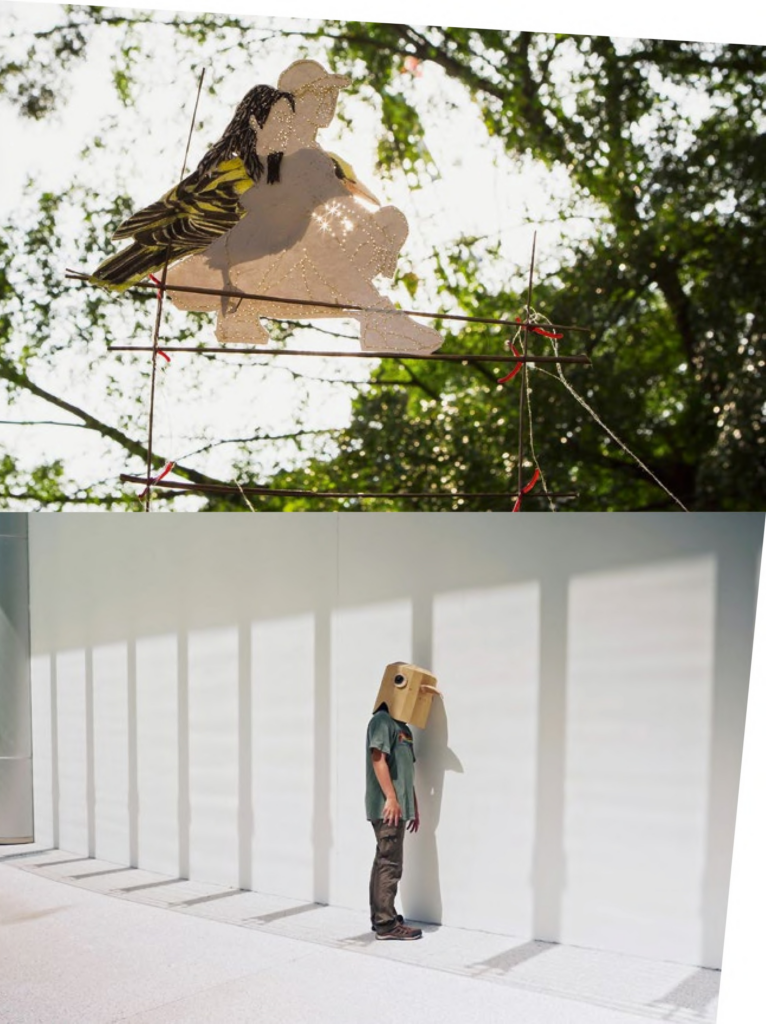THE MIGRANT ECOLOGIES PROJECT
Established in 2009, Lucy Davis, born 1970. Home city Singapore, lives and works in Helsinki, Finland. Zachary Chan, born 1990 in Singapore, where he lives and works. Kee Ya Ting, born 1988 in Singapore, where she lives and works. Zai Tang, born 1984 in London, United Kingdom, lives and works in Singapore
{if your bait can sing the wild one will come} Like Shadows Through Leaves
2021

The Migrant Ecologies Project was founded in 2009 by artist, art writer, and academic Lucy Davis as an umbrella for informal, durational, trans- disciplinary collaborations in and around art and ecology, primarily in Southeast Asia. Davis is an associate professor in Visual Cultures at Aalto University, Finland. Between 2005 and 2016, Davis was a founding member of the School of Art, Design and Media at Nanyang Technological University (NTU), Singapore. Her collaborators on the project, Zachary Chan, Kee Ya Ting, and Zai Tang are artists with backgrounds, respectively, in the fields of sonic arts and graphic design, photography and video production, and sound design. In 2021 {if your bait can sing the wild one will come} Like Shadows Through Leaves was awarded the FIPRESCI International Federation of Film Critics Award at the 67th International Short Film Festival Oberhausen.
The Migrant Ecologies Project’s film is part of the artists’ long-term engagement with Tanglin Halt, one of Singapore’s oldest public housing estates. Built alongside a railway track that ran through the heart of Singapore but is no longer in operation, these once pioneering modern housing blocks are now empty and slated for demolition. The ten-meter-wide strip of railway land, formerly owned by the Malaysian state and now a zone of indeterminate governance, hosted a wealth of human and animal activities. Ornithologists observed 105 different species of birds in the property. Now the low-income residents who called Tanglin Halt home have been relocated elsewhere. Tree shrines, community vegetable gardens, and gathering places that had grown up on the former railroad tracks have been removed, while bird life has drastically declined.
The artists returned to this site in transition and traced the remaining echoes, shadows, and memories defining this piece of land. Using online images sourced from birdwatcher groups, they projected the shadows of birds at dawn with overhead projector transparencies. In addition, they recreated the birds’ presence using paper cut-outs. The fragmentary voices and bird calls of the film’s soundtrack are drawn from field recordings of birds in the area, interviews with former residents and nature activists, and a selection of bird-specific Malay pantuns (four-line poems), compiled by writer Alfian Sa’at.


